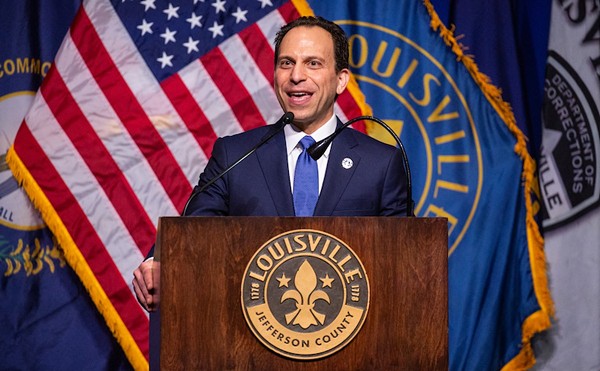As Kentucky begins to feel the pain of federal sequestration this summer due to the Budget Control Act of 2011 — with cuts to education and already depleted social services — now the other shoe is beginning to drop: cuts in defense spending that will particularly harm the area around Fort Knox, south of Louisville.
Last week, mandatory once-a-week furloughs began for 680,000 civilian Department of Defense employees across the country through the end of September, amounting to a 20-percent pay cut. A total of 8,700 employees will be furloughed in Kentucky, with more than 5,000 of those working at Fort Knox, estimated to be a $28.9 million blow to Kentucky’s economy.
An even bigger setback for the area was announced by the Army two weeks earlier. Due to sequestration, Fort Knox’s 3rd Brigade Combat Team, 1st Infantry Division — dubbed the Duke Brigade — will be one of 12 BCTs inactivated nationally by 2017, with some expecting this as early as next year.
The loss of the Duke Brigade — most of whom are currently serving in Afghanistan — will lead to a 43-percent reduction in active military at Fort Knox, by far the largest reduction of any base. More than 3,300 soldiers will be removed, with 10,000 people total including dependent family.
Officials from the Kentucky Commission on Economic Affairs and the Hardin County Chamber of Commerce estimate that the negative economic impact of the move could be in the hundreds of millions of dollars, harming tax revenues and local businesses.
But these furloughs and cuts might only be the beginning, as sequestration will kick in for the next fiscal year if Congress does not pass an alternative to the Budget Control Act by October. Without such an agreement, the furloughs could continue indefinitely, with an additional 100,000 soldiers cut over the coming years on top of the 80,000 reduction to the Army announced in June.
While Kentucky’s congressional delegation has gnashed their teeth at the inactivation of Fort Knox’s Duke Brigade, there appears to be little sign that Republicans and Democrats in Congress are close to a compromise to end sequestration, and with it the steep trillion dollars in cuts to domestic and defense spending over the next decade.
The announcement on the Duke Brigade in June came as a shock to many Kentucky officials, considering that the Department of Defense had invested $500 million in recent improvements to the base, along with $250 million in infrastructure by the state.
Gov. Steve Beshear — who previously denounced partisan D.C. bickering for the furloughs caused by sequestration — says he is “deeply disappointed” and hopes the Army considers expanding other employment at Fort Knox as restructuring continues.
Sen. Mitch McConnell, whose office has not put out an official press release on the matter, told The Courier-Journal that the Army’s move is “short-sided.” Congressman Brett Guthrie — who represents Kentucky’s 2nd District including Fort Knox — described the move as a “unilateral effort” by Obama’s Defense Planning Guidance of 2012.
However, Guthire’s official statement neglected to mention the fact that this guidance was necessitated by the enormous defense cuts within the Budget Control Act, which he himself voted for in the summer of 2011.
That summer — with congressional Republicans threatening to not increase the debt ceiling, risking default — both parties came to an agreement on the Budget Control Act, imposing draconian cuts to domestic and defense spending in 2013 that neither side wanted, unless a reasonable debt reduction plan could be reached. After failing to reach a compromise by the deadline this March, the cuts went into effect.
While most Republicans were initially opposed to such defense cuts — with the exception of severe deficit hawks like Sen. Rand Paul — many are now warming up to a reality in which sequestration remains in effect.
Sen. McConnell has stated support for a “grand compromise” — reforming and cutting Social Security and Medicare in exchange for ending sequestration — but does not appear to be in a rush, telling reporters in March that sequestration “is really quite a modest reduction. We ought to be doing a lot more than this.”
Other Republicans, such as Rep. Guthrie, remain harshly critical of the defense cuts, instead proposing to increase defense spending while offsetting this with even further cuts to domestic programs that have already been cut near the bone.
Congressman John Yarmuth — who voted against the Budget Control Act and has been a fierce critic of Republicans’ inability to compromise on a solution — says he defers to the military on how best to allocate troop strength amidst budget restraints.
“What I’m more concerned about is the ridiculous budgetary situation we find ourselves in that has contributed to these cuts,” Yarmuth tells LEO. “And clearly (my Republican colleagues) are all complicit in those decisions.”
With Sen. McConnell now facing a serious challenge in Alison Lundergan Grimes for his re-election race next year, he has begun to tout his “influence” as Senate minority leader, which would be more beneficial for Kentuckians than the “rookie” Grimes. But Yarmuth views McConnell’s absence on Fort Knox and sequestration as a sign that such influence is exaggerated.
“I think, with the exception of the tobacco buyout, I can’t find many instances in 30 years where he’s used his influence to help Kentucky much, other than bring back money with earmarks when he could,” Yarmuth says. “And he’s not allowed to do that anymore (with the 2011 earmark ban).”
Though federal revenues are increasing and the deficit has rapidly shrunk in recent months, Yarmuth says the House Republicans’ refusal to call a conference committee with the Senate to iron out a budget deal makes the possibility of another manufactured crisis come October likely.
“I see us headed for a real train wreck with a very distinct possibility of a government shutdown,” says Yarmuth. “There doesn’t seem to be any optimism in Congress on being able to solve sequestration, the debt ceiling or a continuing resolution for next year. All of those things seem to be colliding at the wrong time.”





